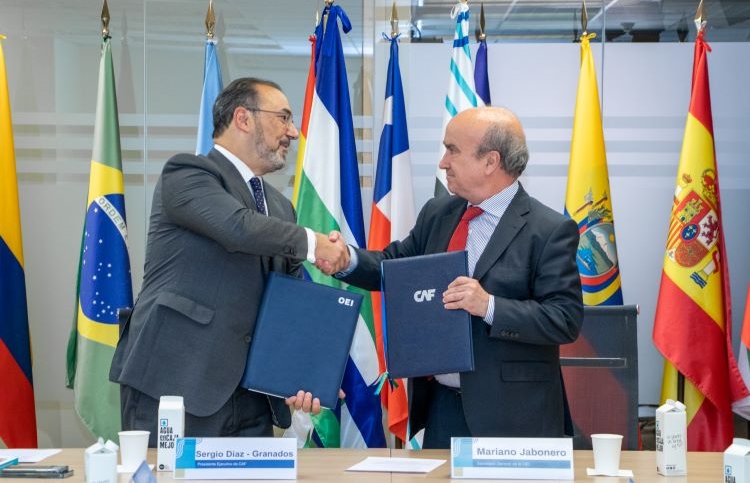The Diplomat
CAF-Development Bank of Latin America and the Organization of Ibero-American States for Education, Science and Culture (OEI) have signed a collaboration agreement to support the technological modernization and management of educational public administrations in Argentina, Uruguay and the Dominican Republic.
According to the OEI, the agreement was signed on May 24 in Madrid by the executive president of CAF, Development Bank of Latin America, Sergio Díaz-Granados, and the secretary general of the OEI (Organization of Ibero-American States for Education, Science and Culture), Mariano Jabonero.
The agreement is part of the Ibero-American Program for Strengthening the Digital Transformation of Public Education Administrations and will enable the design and implementation of a roadmap to implement projects to improve educational management through the use of technology.
The ultimate goal, as highlighted by CAF’s executive president, is to “enable the necessary tools so that the different public educational bodies can enhance the tools that facilitate the management of educational policies and programs, from their planning to their monitoring, evaluation and adjustments, guaranteeing better results and optimal allocation of resources”.
In the words of Mariano Jabonero, the creation of synergies “is central to the work of the OEI”, for this reason, “this alliance with CAF is of great importance because it is part of one of our fundamental strategic lines such as the digital transition, not only at the educational level but also in the institutions of our region”. In this sense, the Secretary General emphasized that “the bet for the future has to go through digitalization to face what happened after the pandemic”.
This program will be applied in the Argentine province of Jujuy, as well as in Uruguay and the Dominican Republic, a country that has recently joined CAF and with which the OEI maintains a close relationship, especially with its Ministry of Education.
CAF, whose mission is to promote sustainable development and regional integration by financing public and private sector projects, providing technical cooperation and other specialized services, was created in 1970 and is currently made up of 20 countries -18 from Latin America and the Caribbean, together with Spain and Portugal- and 13 banks. Since 1949, the OEI has been the first intergovernmental organization for South-South cooperation in Ibero-America. It currently has 23 member states and 19 national offices, in addition to its General Secretariat in Madrid.







